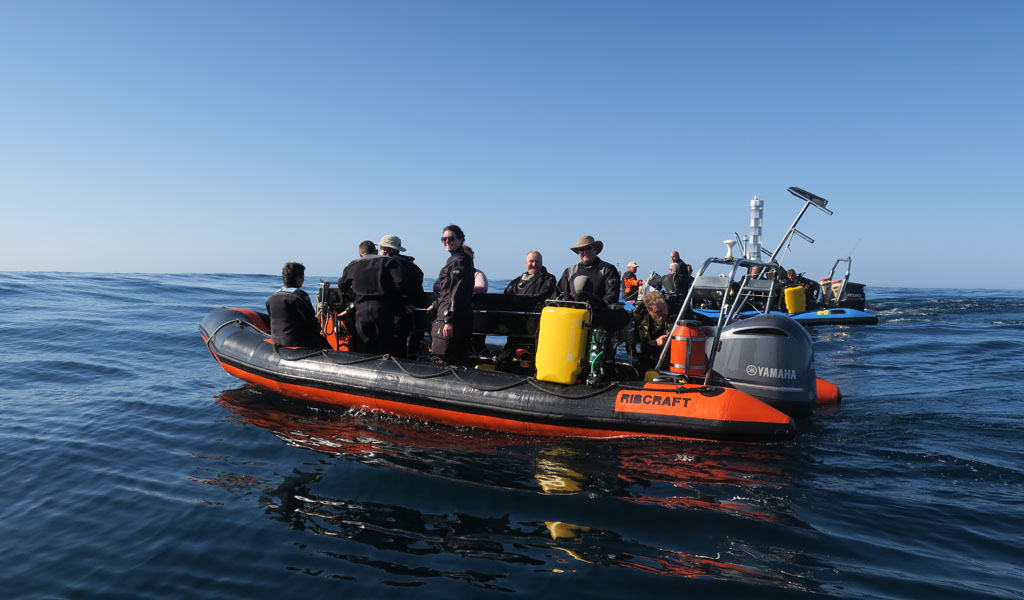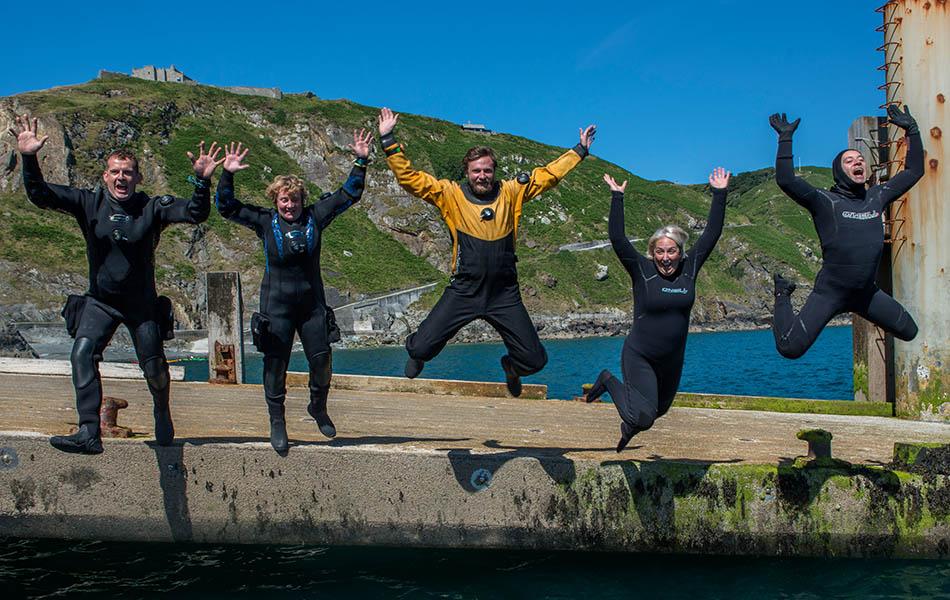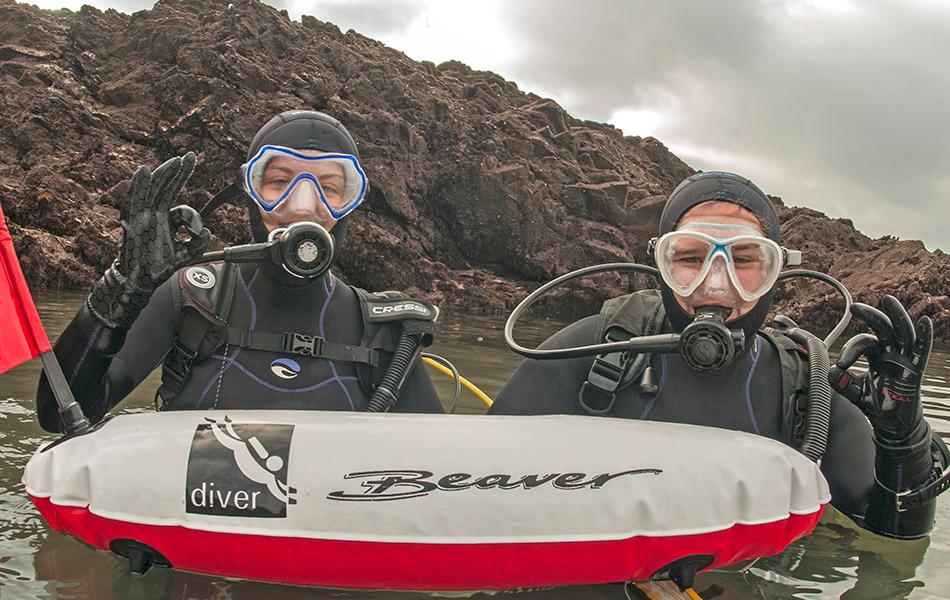
This long hot summer had been brilliant diving weather! So for once, it's fair to say, we can’t complain we haven’t had a summer this year!
The recent spell of weather has been highly enjoyable for the most part and being out at sea offers some excellent opportunities and makes the heat more bearable and even escape from it for a while.
Of course, nothing good ever arrives without some extra considerations and the impact of this good weather needs to be enjoyed with a certain eye to maintaining safety. Taking some simple precautions can help keep the summer enjoyable and not lead to adverse consequences.
Sun protection when scuba diving
We are hopefully all aware of the need for protection when out at the same time as “…mad dogs and Englishmen…” and ensure that we apply high protection factor suncream and wear a hat. The nature of our activity tends to ensure that the majority of our bodies are fully covered up, at least in the UK.
However, we need to be aware of the implications of being by the sea, especially in a boat. Firstly we experience a double dose of the sun as we have the additional impact of the sun reflected back from the water’s surface. Secondly, there is an apparent cooling effect from the surrounding water and any ‘sea breeze’ that can make it harder for us to realise the extent of sun exposure we are experiencing until much later in the day, by which time we may already be badly sunburnt.
Sunburn itself can be extremely painful in itself but a further and much more serious concern is the risk of skin cancer from exposure to high levels of UV light. Not only should individuals take personal responsibility for their own safety and take appropriate precautions but others around them including dive managers should also be conscious and remind people of the need to take care.
Staying hydrated whilst scuba diving
Hydration 1
Keeping normally hydrated is considered important for us to function normally and increasing levels of dehydration can have an impact on our mental and physical capacities. Whether or not dehydration presents an increased risk of DCI varies depending on the views of different experts but clearly ensuring we are able to function at optimum capacity must be a key consideration for us all.
Remaining hydrated is not a matter of simply drinking lots of fluids and certainly should not be to excess levels, not least because any excess would simply be excreted by the body. The trick is little and often and frequency should be determined by the prevailing conditions (eg a period spent sweltering on the surface in a drysuit should warrant more frequent sips of water).
 Hydration 2
Hydration 2
Taking on excess water, especially before a dive, can have adverse consequences. The most obvious and involving at best discomfort and at worst severe embarrassment is that as the body attempts to dispose of the excess there is a need to urinate (not good news on a long dive in a drysuit).
The bodies natural process of handling fluid is accentuated when in water as the additional excess is also filtered out.
There is however also an increased risk in such situations for the implications of Immersion Pulmonary Oedema (IPO* covered a number of times in recent years in these articles) to occur and so provides another compelling reason not to over-hydrate.
Aim to keep within 1-3 on the colour chart opposite.
Want to develop your diving and safety skills?
Send your postcode to hello@bsac.com and we'll help you find the right scuba club for you to train with. Or if you fancy a chat call us 0151 350 6226 (Mon - Fri, 9 - 5:30).

 Author: Jim Watson | Posted 14 Aug 2018
Author: Jim Watson | Posted 14 Aug 2018




